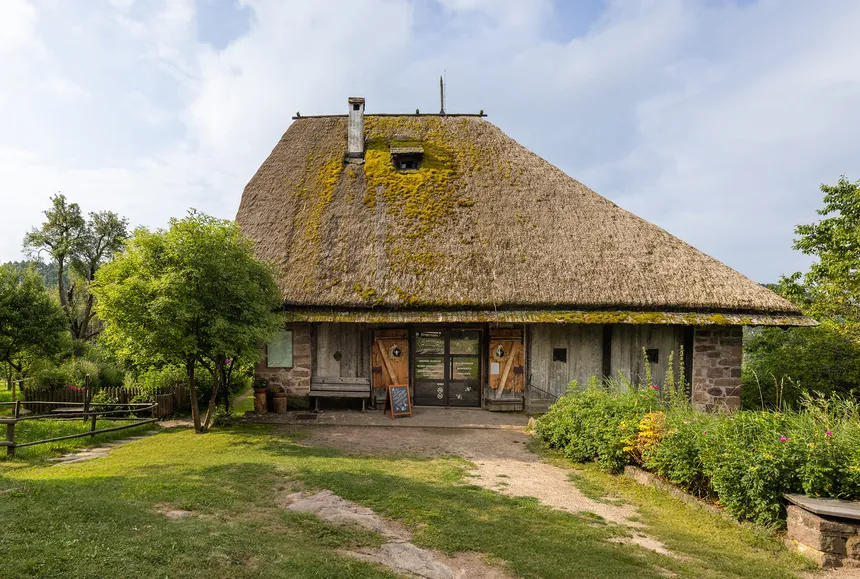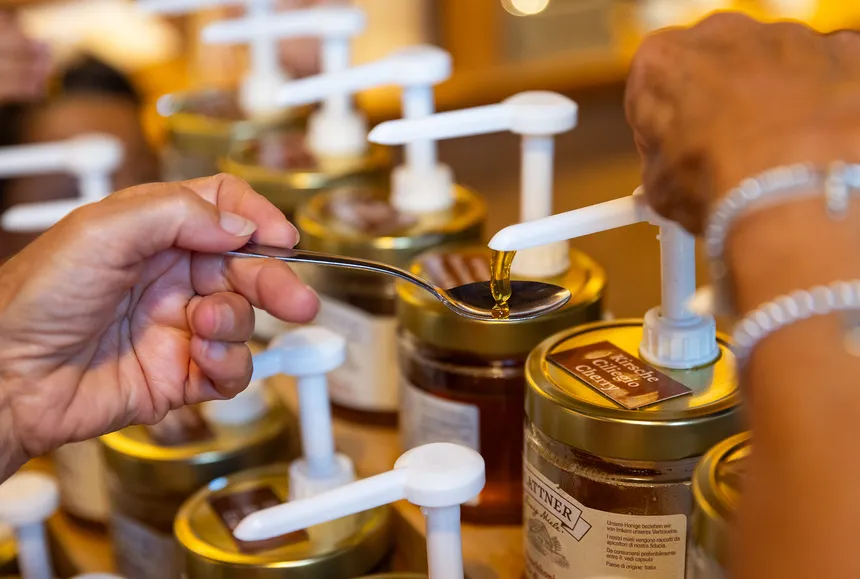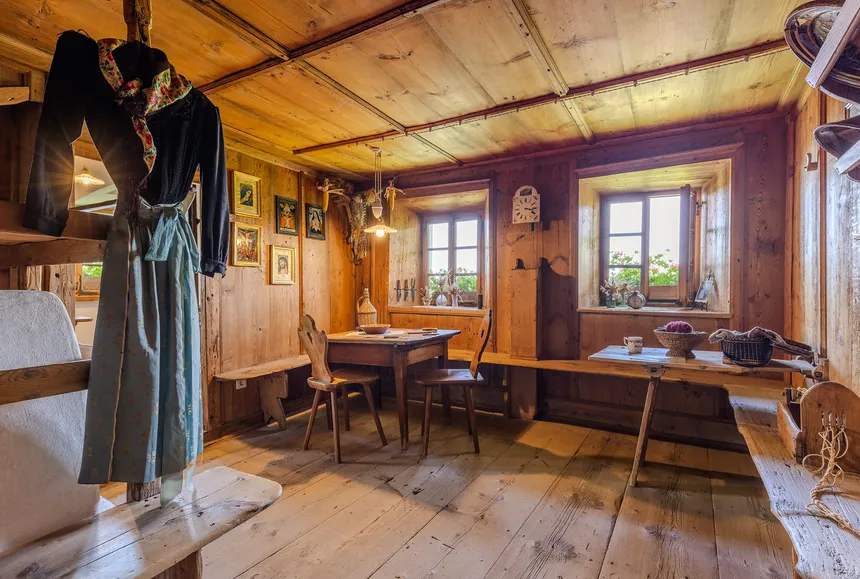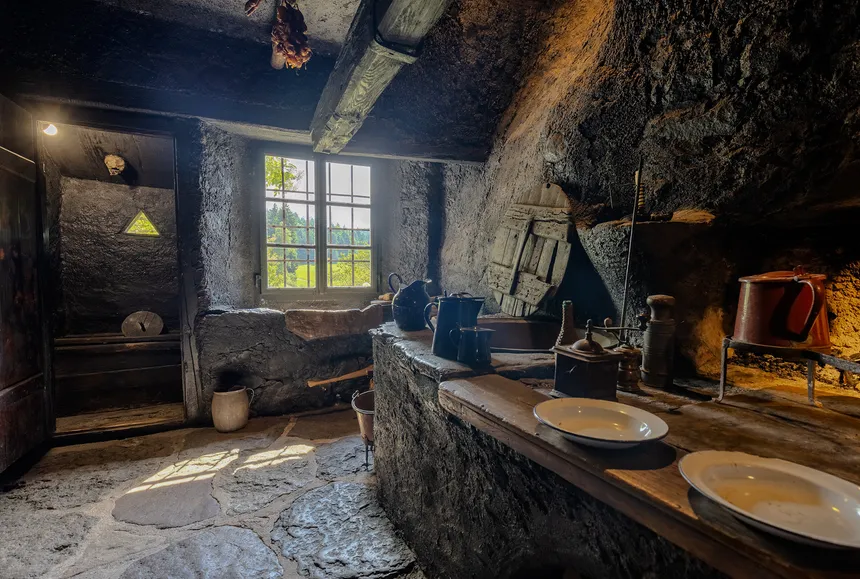Your shopping cart is empty
Historical beekeeping equipment, exciting presentations and informative tours.
Your shopping cart is empty
The Plattner Bienenhof up here on a hill in Renon. Peacefully nestled between green meadows, shady trees and a pond with pink water lilies, it quietly tells its story. Even after the Gramm family acquired the now 600-year-old farm in 1987 and renovated it in 1991, the soul of the Plattnerhof was preserved. With the buzzing of bees as an eternal heartbeat.
Today, under the traditional thatched and shingled roof of our bee farm, you will find the preserved house of the former residents, taking you back in time. Next door, on the ground floor, you can taste our honey and replenish your supply for home. In addition, exciting presentations and more take place there as part of the museum tour. One floor down, in the former stable, the journey through time continues. This time with historical beekeeping equipment.


Without water and without electricity, Philomena and Amalia Oberschartner were the last farmers to live on the Plattnerhof until 1975. Almost autonomous, they nevertheless lived very poorly. Once a week they went to Bolzano to sell cheese, butter and eggs. They walked the distance to the city barefoot, only then did they put on their shoes to protect them.
The sisters, generally known as strong and stubborn, lived a rather secluded life on what is now the bee farm. Only Philomena, as sexton of the old parish church of Wolfsgruben, took part in community life.
When the South Tyroleans were resettled to the German Reich between 1939 and 1943, the Plattnerhof was to be surveyed. However, this was not possible at first, as Philomena loudly chased the responsible gentlemen from the farm. It was not until 1942, during the absence of the two sisters, that the survey was successful.

